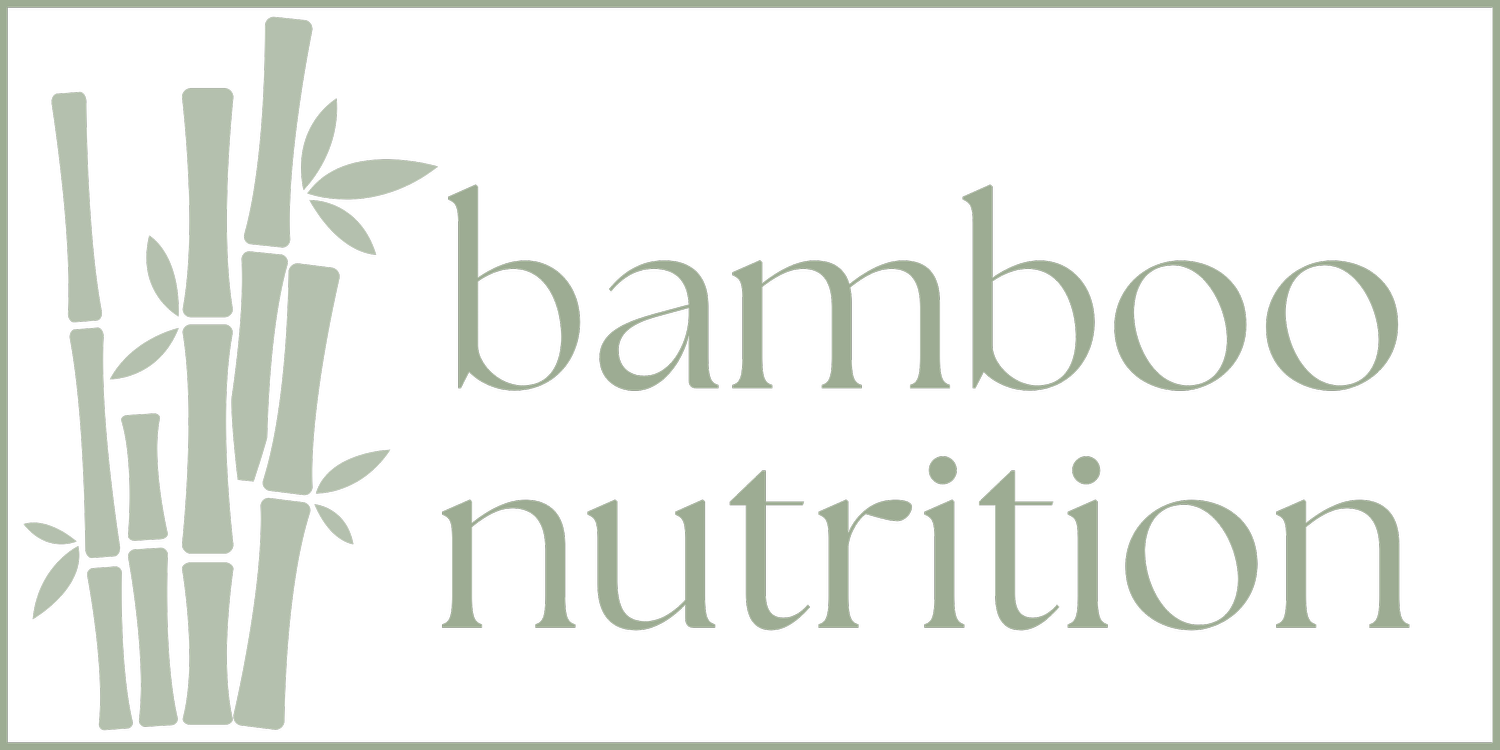Written by Bamboo Nutrition therapist, Sarah Nonnenmacher, LPC, CEDS.
Bamboo Nutrition is located in Columbia, Missouri and Rochester, Minnesota.
What self compassion is not…
One of the things I believe makes self-compassion so hard for most people is simply misunderstanding what it is. If I believe self-compassion is the same as self-esteem, or feeling good about myself, that’s going to be really hard to just summon up. I may even feel like I'm lying to myself if I try to think positively about myself.
Others may believe self-compassion is taking it too easy on yourself, and following every internal whim. If I know that there’s a part of myself that wants to sleep in, watch TV and eat bon-bons all day, neglecting my kids and my responsibilities, then yeah, it would not be good for my thriving to give into that.
The good news is, neither of those are what we’re really talking about, when we talk about self-compassion.
Self-compassion is not feeling better about yourself, but relating to yourself kindly when you feel your worst.
Self-compassion is not doing whatever you want, but asking yourself, what do I really need?
what self compassion is…
Self-compassion is relating to yourself with the same kindness as you would a good friend, or even a neutral acquaintance.
According to Kristen Neff, self-compassion has three main components: Mindfulness, Kindness, and Common Humanity. Let’s look at each one together
Self Compassion is… mindfulness
Mindfulness is a muscle that takes a lot of practice to build.
The definition of Mindfulness, according to Marsha Linehan, founder of DBT, is “to pay attention with intention to the present moment without judgment.”
Mindfulness means being intentionally aware of what’s going on in this moment, not what happened an hour ago or what will happen tomorrow, but what’s happening now. This awareness extends to the often-neglected realm of my internal world: my thoughts, feelings, and internal experiences. It means I’m aware of what’s going on inside of me, just as much as what’s around me. And the hardest part about mindfulness is that last part, “without judgment.” It means I pause or suspend my automatic response of labeling something as good or bad, and see something just as it is.
Mindfulness is a muscle that takes a lot of practice to build. This non-judgmental stance goes against our human tendency to slap labels around, but it also has the capability of opening up a whole new world of possibility. When we can begin to accept ourselves just as we are, “warts and all,” only then are we in a position to make meaningful change.
Self Compassion is… Kindness
This one should be a little more self-explanatory, but in the context of self-compassion things can be a little more fuzzy. So let’s take the focus off the self, for a second. What does it mean to be kind? It means to smile at someone. To see them as a valuable human being, even (or especially) when they’re having a bad day. It means doing what we can to lift someone’s burden, or at the very least, not add to it. Sometimes it means going out of your way to help someone. Sometimes it means just being basically civil.
In my experience, the people who struggle the most with self-compassion don’t find it difficult to be kind. In fact, they are probably the kindest people you’ll ever meet. It’s just hard to extend that same kindness to our own selves. Because after all, no one knows our faults and failures as deeply as we ourselves do. But if we can treat strangers or people we don’t even like very much with basic civility, what if we can even just begin to treat ourselves with the same level of courtesy? Wouldn’t that make life just a little bit easier?
Self Compassion is… Common humanity
The concept of Common Humanity means putting yourself in context. It means honoring the sacredness of human life, both in you and the person across from you. It means recognizing the warmth and connectedness in the Human Family, and putting yourself in that circle.
There are two sides of the Common Humanity coin: one side is recognizing my own failures in context, the other is accepting that my life is equally valuable as the lives of others.
I like to think about it this way:
Truth A: To be human means to be inherently valuable, worthy of love and respect.
Truth B: I am a human.
Therefore, whether I feel like it or not, I am also a being of inherent value, worthy of love and respect.
And, when I mess up, feel inadequate or frustrated with myself, experience pain or loneliness or the bitterness of failure, I remember that this is what it means to be human, too. My inadequacy is no worse than anybody else’s. To be human means to struggle, to be imperfect, to not always live by your values, to even feel frustrated with yourself from time to time, and regardless of all that, to still have inherent value.
Instagram: @bamboonutritionrd
You may have learned from an early age that you are only valuable if you do good enough, work hard enough, earn enough praise. These are all painful beliefs that we can work on to overcome, and they are not grounded in truth. When I remind myself of what is true, I remember that I”m no better and no worse than my neighbor. And that frees me to be kinder to others, and to myself.
Join Sarah Nonnenmacher’s 6-week series group on self compassion. Read more about it by clicking the button above.
Sarah Nonnenmacher is a licensed professional counselor and created this online group to help individuals break free of ongoing negative self criticism.



